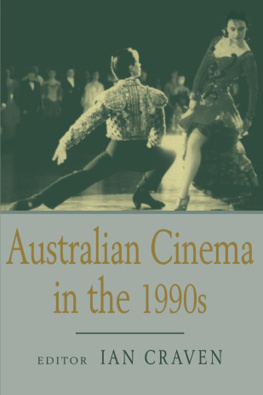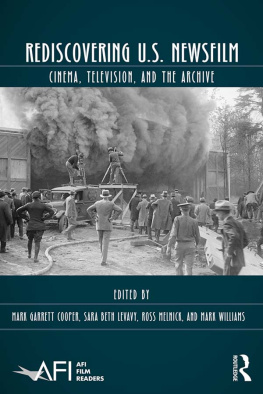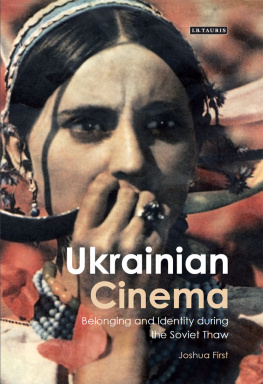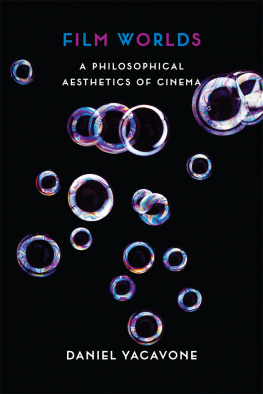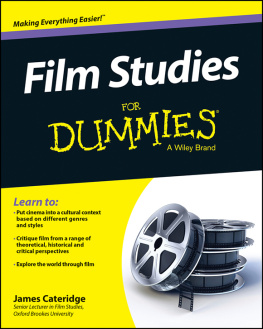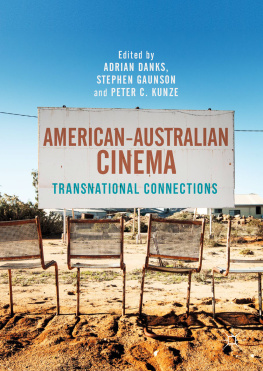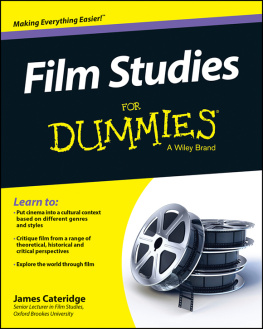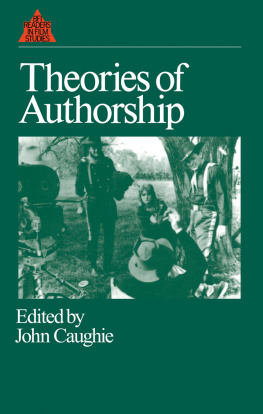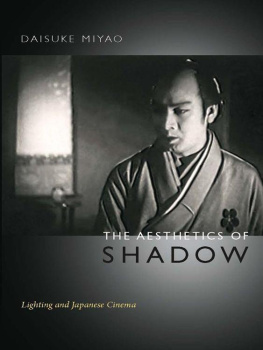Books of Related Interest
Business Institutions and Behaviour in Australia
edited by David Merrett
The Australasian World: Sport in Society
edited J.A. Mangan and John Nauright (eds.)
Fairbridge: Empire and Child Migration
by Geoffrey Sherrington and Chris Jeffery
The Australian Security Intelligence Organization: An unofficial History
by Frank Cain
First published in 2001 in Great Britain by
FRANK CASS PUBLISHERS
2 Park Square, Milton Park, Abingdon, Oxon, 0X14 4RN
and in the United States of America by
FRANK CASS PUBLISHERS
270 Madison Ave, New York NY 10016
Transferred to Digital Printing 2005
Website www.frankcass.com
Copyright 2001 Frank Cass & Co. Ltd.
British Library Cataloguing in Publication Data
Australian cinema in the 1990s
1. Motion pictures Australia 2. Motion pictures, Australian
I. Craven, Ian
791.43099409049
ISBN 0 7146 4974 0 (cloth)
ISBN 0 7146 8034 6 (paper)
Library of Congress Cataloging-in-Publication Data:
Australian cinema in the 1990s / editor, Ian Craven.
p. cm.
Includes bibliographical references and index.
ISBN 0-7146-4974-0 (cloth) ISBN 0-7146-8034-6 (pbk.)
1. Motion picturesAustraliaHistory. I. Craven, Ian.
PN1993.5.A8A953 2001
791.430994dc21
00-060177
This group of studies first appeared in a special issue of Australian Studies, ISSN 0954-0954, Vol.14, Nos.l&2 (Summer/Winter, 1999) published by Frank Cass and Co. Ltd.
All rights reserved. No part of this publication may be reproduced, stored in or introduced into a retrieval system, or transmitted, in any form or by any means, electronic, mechanical, photocopying, recording or otherwise, without the prior written permission of the publisher of this book.
1
Australian Cinema Towards the Millennium
IAN CRAVEN
The history of the new Australian Cinema's revival since the 1970s often now feels like a relatively settled one. A range of studies chart the political cultures which talked the renaissance into being, the institutional frameworks which guided production or formulated policy,
The essays collected in this volume seek to extend this work with reference to the 1990s, by offering a series of overlapping but distinct perspectives on Australian cinema of the past decade, and sketching possible directions for its development beyond the coming Millennium. Attention is given to cinema at every stage of its movement from conception to consumption, and close readings of particular movies, or clusters of movies, are balanced by more contextual work on issues of industry, policy, criticism and reception. Taken together, the essays suggest something of the remarkable diversity of the feature output since 1990, and the challenges that this body of film poses to the critical and theoretical paradigms through which the work of Australian filmmakers has come to be understood both within and without the academy.
the 1990s might well be viewed as a period marked by re-regulation at the levels of both text and context, and by structures and discourses fusing nostalgia for the heady days of the nationalist renaissance with a futuristic open-ness to the possibilities of the global. Both impulses of course have their counter-tendencies; one need not look far through Australian cinema of the 1990s to identify evidences of scepticism around the once-confident articulation of cultural nationalism with political progressiveness, and of millennial anxiety generating more than a fair share of suitably apocalyptic narratives.
The conflicting trends are contextualised initially here by scrutiny of the film industry's performance and structure, which reveals dramatic shifts in fortune, and almost constantly changing patterns of ownership and control. The picture in terms of policy-making and implementation is equally dynamic. No national film industry on earth seems to have been subject to more constant surveillance, re-definition and re-direction than the Australian; reconstructions of the government film's instrumentality following consultancy reports, position papers and counter-manifestos became almost seasonal at times during the 1990s, and instabilities at these discursive levels played a crucial role in delineating the product eventually reaching movie theatres. Lisa French provides an informative account of the production sector since 1990, with reference to the key policy documents generated, the responses of filmmakers and financiers, and the performance of the industry which they helped to shape. As the hard statistical data indicates, Australian feature-filmmaking remained a fragile enterprise in the 1990s, and the conspicuousness of a small number of films at the international box office often concealed a production sector struggling to find a secure route through distribution to reach audiences still demonstrating a consumer preference for imported, usually American, movies.
The picture of the industry in the 1990s which French delineates does much to explain the unevenness of the output, which often seems to exhibit little consistency beyond its insistence upon the idiosyncratic, despite Tom O'Regan however provides a useful starting-point for understanding this manifest diversity, when he suggests that: The history of Australian film is largely a history of the combinations of possible projects, and an indication of which of these are ascendant, and remarks that the conditions generating these combinations include:
the nature of state support offered, the policy framework for delivering it, the extent to which talented film workers concentrate in an area, the international opportunities available in commercial and critical terms through working in a film form, and the critical celebration of this or that film-making.
In their various ways, the essays included here work to track such combinations, often in very localised contexts, and to indicate the relationship between such conjunctural forces and a wider socio-political culture unifiable at other levels.
Late-National Cinema?
By the late 1980s, a number of commentators were already speculating about the disintegration of the project which had driven both national-cultural revivalism and national-commercial entrepreneurialism since the 1970s. In their essay here on The Heterosexual Dynamic, Nigel Spence and Leah McGirr track some of the thematic shifts which have accompanied this re-definition of Australian filmmaking, and focus in particular on the rise of a personal-relations cinema occupying a somewhat marginal space in the earlier output. As the emblematic landscapes of the 1970s and 1980s have given way to the more banal locales of the 1990s, the authors see the preoccupations of Australian narratives contracting towards a closer concern with inter-personal, especially inter-gender relations. Both a recognition of absence in the earlier output, and a desire to match the narrative standards of the international marketplace are seen as triggering the turn in the 1980s, which develops and becomes more complicated in the 1990s. Starting with higher-profile movies such as The Year My Voice Broke (1987), the impulse is seen as finding expression in later works such as


